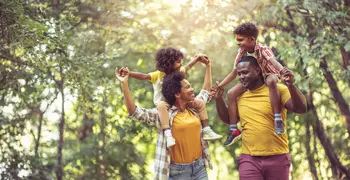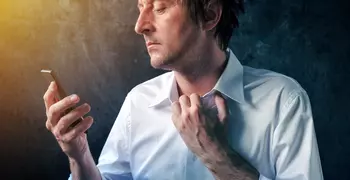COVID-19 and Anxiety
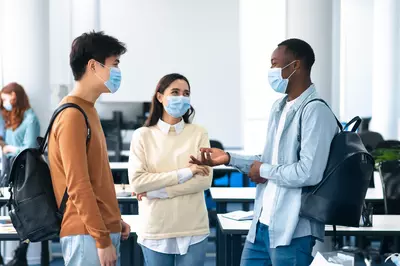
Common COVID-related Stressors
Here are some common sources of anxiety around COVID-19 and what you can do to address them.
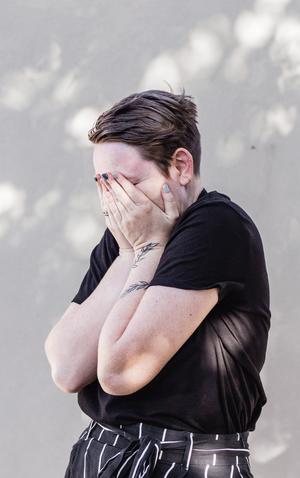 I feel sick. Do I have COVID-19?
I feel sick. Do I have COVID-19?
The Centers for Disease Control’s list of COVID-19 symptoms - such as fever or chills, cough, fatigue, and shortness of breath - is broad. Many of these symptoms also appear in common illnesses such as allergies or a cold. As a result, you may find yourself feeling anxious or hypersensitive to changes in your body. If you have a headache one afternoon, for example, you may wonder if it is COVID-19 or simply the result of staring at your computer screen too long.
If this is the case, the best thing you can do is contact your healthcare provider and see if they recommend getting tested. Stay home, except to get medical care, and follow your provider’s advice.
If any of these symptoms appear, seek emergency treatment immediately:
- Persistent pain or pressure in the chest
- New confusion
- Inability to wake or stay awake
- Bluish lips or face
The news is stressing me out.
Researchers have found that simply hearing about a frightening event can trigger the same anxiety as if you actually experienced it yourself. In a world in which it’s hard to turn on the computer, television, or radio without hearing about rising death tolls and infection rates, it’s no wonder many people are feeling emotions like fear, grief, and horror without being sick or knowing anyone who is.
There are many ways you can protect yourself from fear while reading the news, but one of the best and most immediate methods is to simply unplug. Turn off the computer for awhile and instead do something that makes you happy, like connecting with nature, calling a good friend, exercising, or cooking a wholesome meal.
I'm afraid I'll get sick and won't get better.
It is true that there is currently (as of June 2020) no treatment specifically for COVID-19. While we hear many stories about serious cases that require supportive care in a hospital, the reality is that most cases of COVID-19 are mild and can be treated at home with over-the-counter medications or holistic therapies.
It can be helpful to remind yourself of this fact often, and to remember that news media generally carries the most sensational stories, not the most common ones. If you do experience milder symptoms, you may wish to consult a health professional to see if there are botanical medicines you can try. More than anything, however, getting good sleep, eating a diet high in fruits and vegetables, and practicing good stress management techniques will help support your health.
I miss seeing my friends and family.
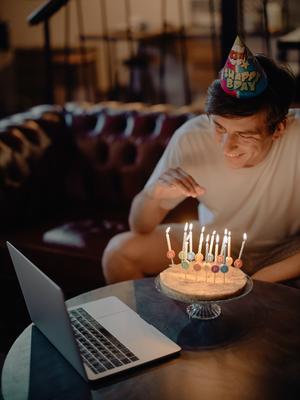 Social isolation is one of the most difficult aspects of the pandemic for many people. Our wellbeing is dependent upon healthy relationships with others, and for many of us, the lack of face-to-face connection can lead to feelings of depression and anxiety.
Social isolation is one of the most difficult aspects of the pandemic for many people. Our wellbeing is dependent upon healthy relationships with others, and for many of us, the lack of face-to-face connection can lead to feelings of depression and anxiety.
However, you can also see this time as an opportunity to be more creative in the ways you stay connected. Use video chat programs, text, write old-fashioned letters and postcards, talk on the phone, or even have socially-distant get-togethers, such as a driveway coffee date. Even when you can’t touch or be physically close, it’s still possible to nurture your relationships by practicing good communication skills, such as expressing gratitude, being vulnerable, and listening deeply.
One of the greatest losses for some of us is not being able to see our elderly or ill relatives who are in senior living facilities or long-term care. We feel their loneliness and isolation keenly, experience a great sense of helplessness, and worry about what might happen to them when we can’t be there. Our hearts and minds are trying to prepare for what we might lose, which is sometimes called “anticipatory grief.” We can help ourselves cope by doing all that we can to help and stay in touch with our loved ones, while also acknowledging and expressing all our feelings around our grief, being kind to ourselves, and reaching out for support.
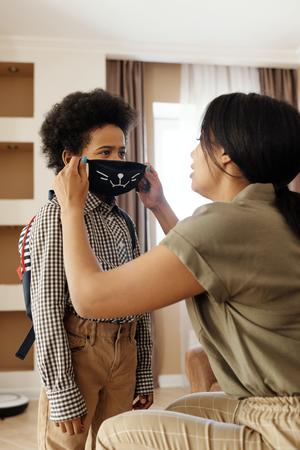 I'm afraid I will infect someone else.
I'm afraid I will infect someone else.
The media and stories surrounding COVID-19 can be frightening, especially as we watch in real-time as health experts learn new information and work toward a vaccine. However, you have considerable control over your risk of infection and spreading the illness to others.
The most important things you can do are to wash your hands regularly with soap, wear protective equipment (such as masks) as recommended, and follow social distancing guidelines. While these rules may sometimes feel difficult to follow, they can significantly reduce your risk of getting sick and of spreading the disease to your community and loved ones.
Try this: every time you put on your mask, take a moment to pause, take a deep breath, and connect to your wish that other people be safe and healthy. You may find it helpful to picture a loved one who is especially vulnerable, such as an elderly relative. As you put on your mask, do so with the intention of keeping your loved ones, and all people, safe and healthy.
What if I lose my job and can't pay my bills?
The economic impact of the COVID-19 pandemic has been devastating to many, from small businesses that were forced to close to individuals who were laid off and unable to return to work. The impact of this loss can be very painful. Losing a job is more than just a financial burden - it can disrupt your sense of purpose, friendships and community, and sense of self-worth. If you are experiencing these effects, acknowledge them and offer yourself some compassion for how difficult things are right now.
Connecting to the present moment and calming your mind can also help you think clearly about how to proceed. Relaxation techniques may help decrease stress so that you can stay focused on finding resources that are available to help you.
